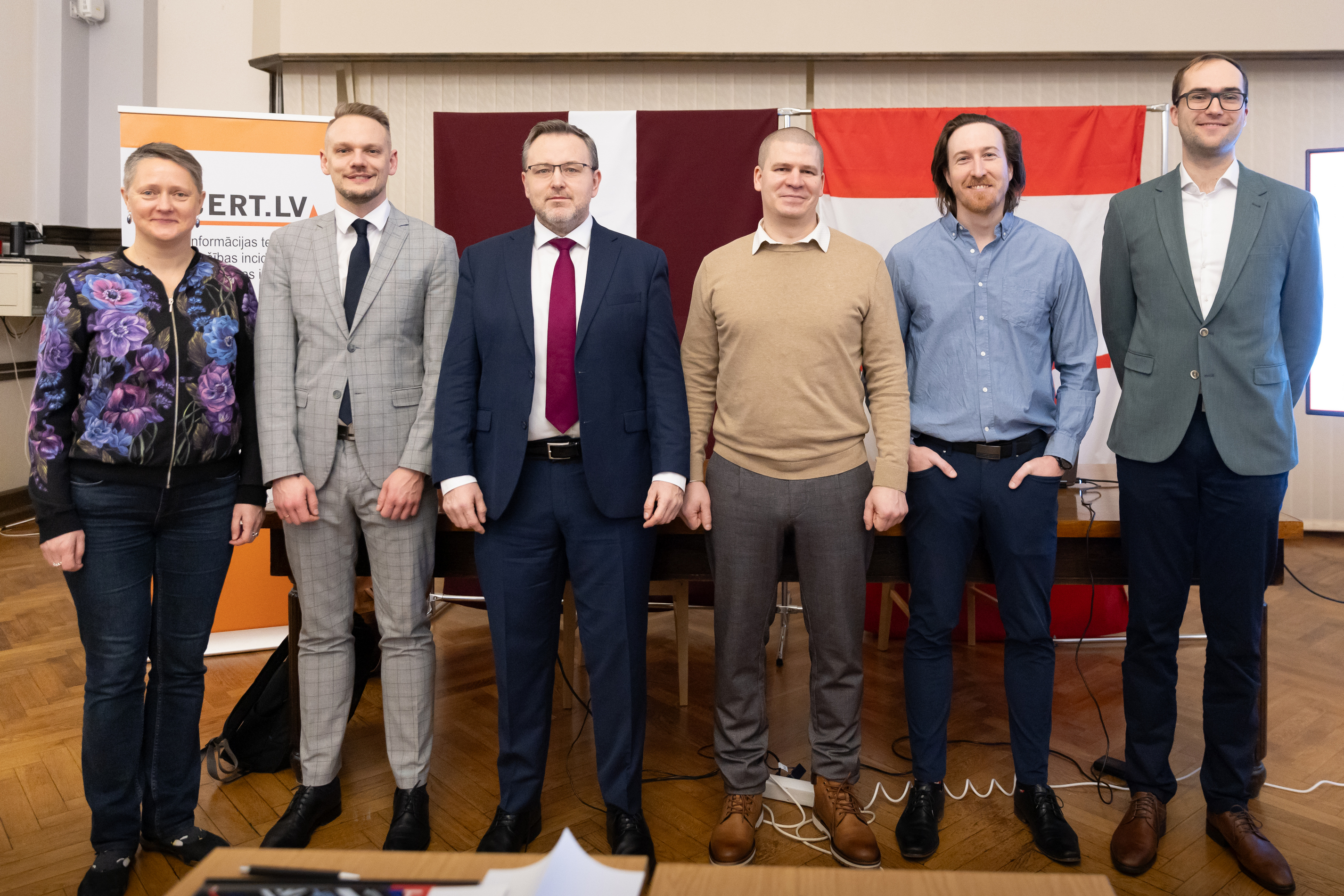Building on Success: Latvia and Canada unveil a refined Threat Hunt Workshop
In February 2025, the Cyber Incident Response Institution, CERT.LV, the Latvian Ministry of Defence, and the Canadian Armed Forces Cyber Command conducted their unique Threat Hunt Workshop. The workshop welcomed 30 participants from NATO nations, drawing cybersecurity professionals from diverse backgrounds.
Building on the success of the initial iteration of the workshop in October 2024, this improved training event marked the next evolution in the ongoing partnership, incorporating lessons learned and new insights from previous joint operations.

Photographer: Sergeant First Class Gatis Indrēvics, Ministry of Defence of Latvia
Hosted at the Institute of Mathematics and Computer Science, University of Latvia, and the CERT.LV Cyber Incident Response Institution, the workshop provided an immersive, hands-on learning environment. The training program and the accompanying Threat Hunt Playbook were significantly updated to include the latest tools, methods, and practical examples, ensuring that participants received the most current and effective training in proactive threat detection.
Attesting to the significance of the Canadian – Latvian partnership Canadian Ambassador to Latvia, Brian Szwarc,; alongside Edgars Kiukucāns, Director of the Cybersecurity Policy Department at the Ministry of Defence; Baiba Kaškina, Director at CERT.LV; Varis Teivāns, Technical Director and Deputy Manager at CERT.LV; and Major Stephen McKeon, Canadian Armed Forces Cyber Command Cyber Task Force 2 Commander, participated in the opening of the Threat Hunt Workshop.
During his opening remarks, Varis Teivāns underscored the critical importance of proactive threat-hunting strategies and techniques in response to the growing sophistication and stealth of cyber threats that Latvia and NATO face daily. “Through our partnership with the Canadian Cyber Task Force, our threat-hunting methodologies – rooted in real-world operational experience – have demonstrated their effectiveness as a deterrent, strengthening the resilience of our critical infrastructure against malicious actors. These advanced capabilities are now being shared with our trusted NATO partners to enhance collective cyber defence and safeguard the ever-expanding cyber domain.”
Canadian Ambassador to Latvia, Brian Szwarc, stated “We find immense value in our joint collaboration in cyber-security. This partnership allows us to further contribute meaningfully to NATO security.”
Edgars Kiukucāns added “Cyber threats grow in complexity, and our ability to defend, detect, and hunt threats must evolve. In close collaboration with our NATO partners, our proactive approach helps identify and neutralize attacks before they can cause significant damage to our organizations, critical infrastructure and even governmental institutions. Being inside of the cyber battlefield allows us to predict the enemy’s next move and stop them in their tracks. Strategy, collaboration, and continuous vigilance are vitally important in the field of cybersecurity.”
Cybersecurity experts from more than 25 NATO member states participated in both the inaugural and latest sessions of the workshop. They seized the opportunity to strengthen their threat hunting capabilities and expand their knowledge of cutting-edge cyber defence strategies. The successful execution of this workshop not only bolstered the cyber resilience of the participating organizations but also set a new benchmark for future collaborative initiatives in international cybersecurity training.
As the key organizers, CERT.LV and Canadian Armed Forces Cyber Command look forward to further developing the course, they remain committed to fostering robust international cooperation and continuously advancing threat hunting capabilities to meet emerging cybersecurity challenges.
















